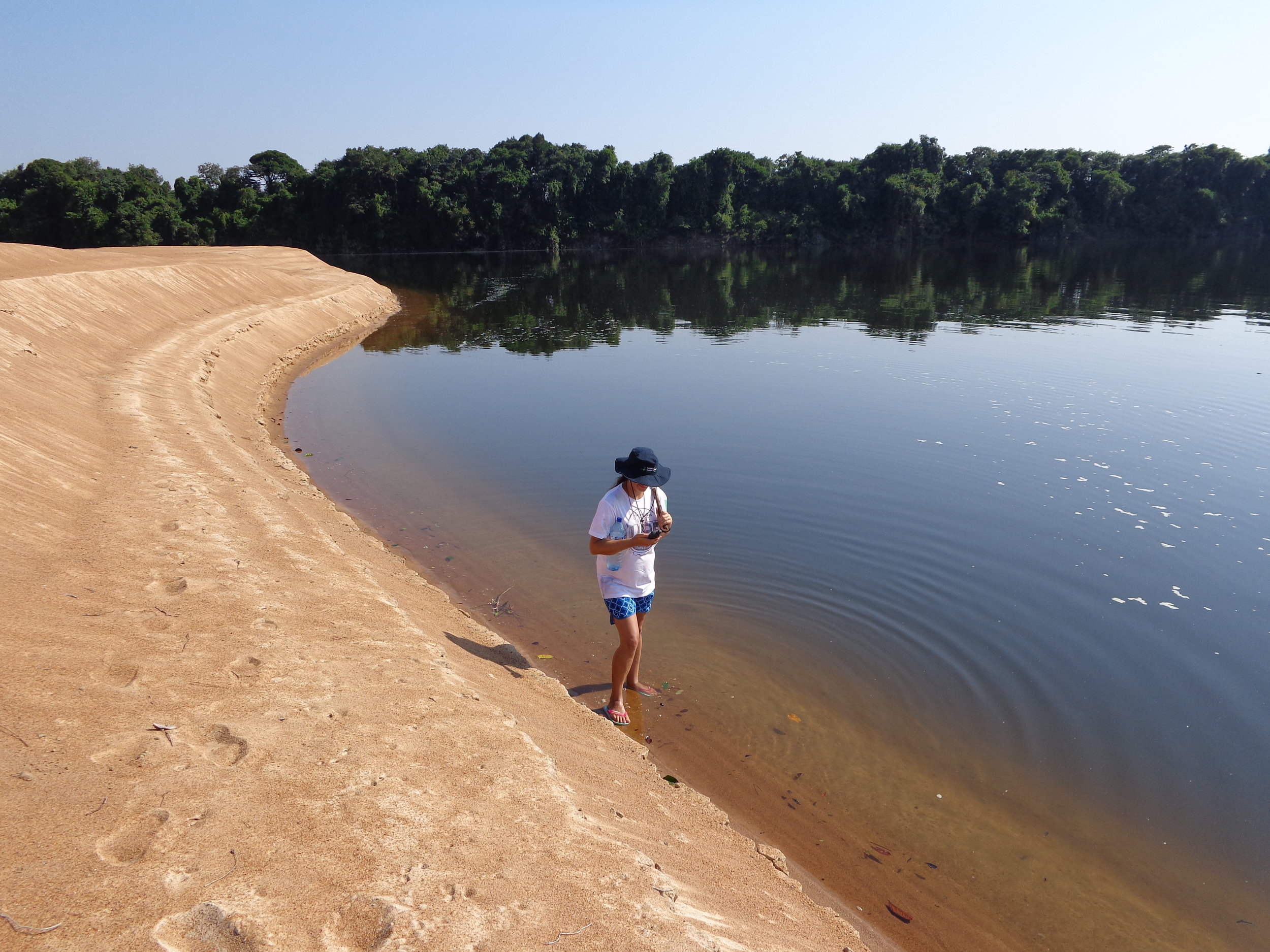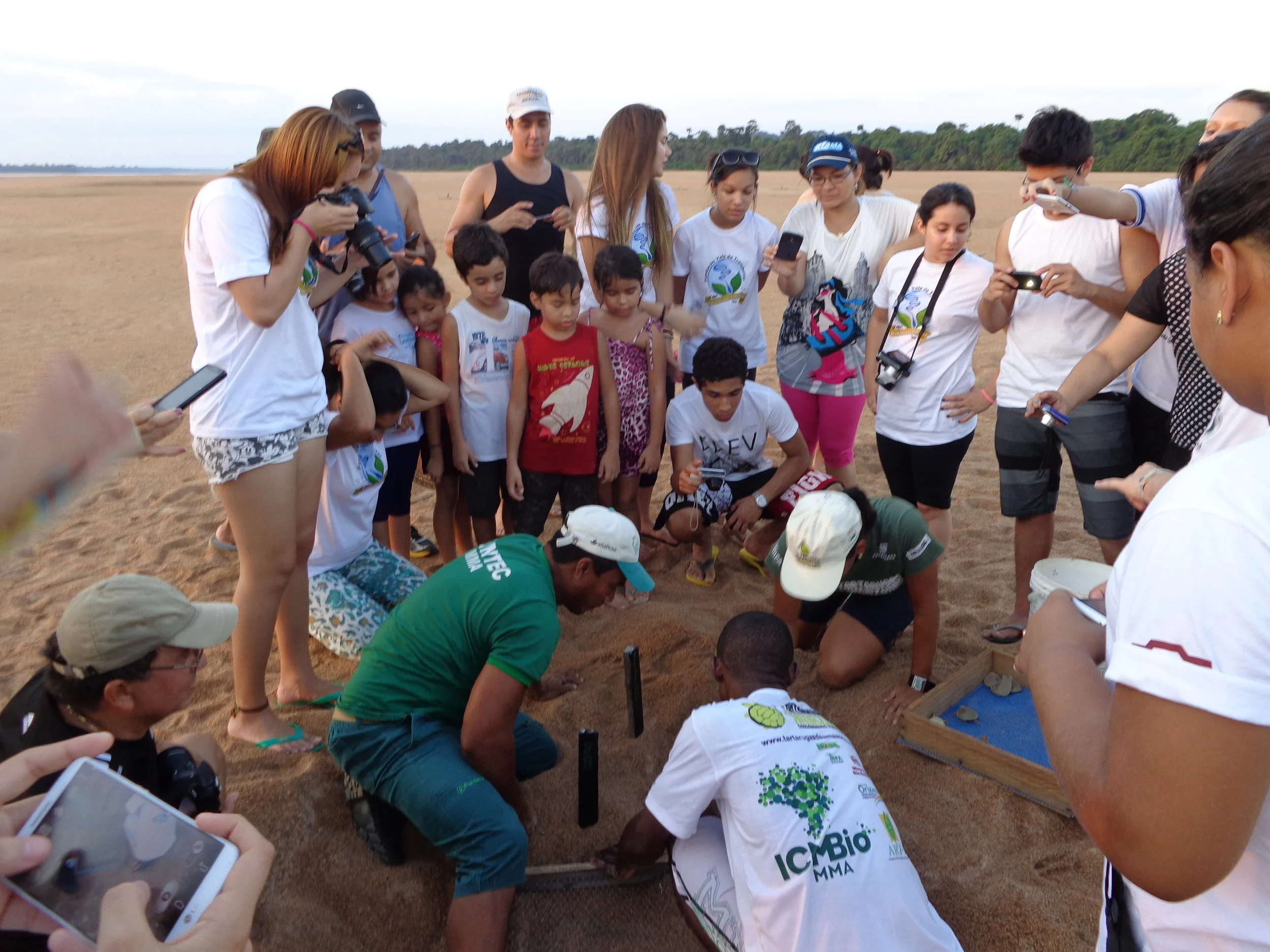Giant Amazon River Turtle (Podocnemis expansa) hatchling
Brazilian Amazon
Our Amazon projects aim to promote collaborations between Brazilian and Australian students and researchers through research and a field intensive unit in wildlife conservation. The exchange of experiences and ideas between those working in similar regions but in different parts of the globe leads to innovative ideas to overcome the logistical complexities imposed by these remote tropical locations.
BAFI students at Adolpho Ducke Forest Reserve (Manaus, Brazil) in 2016
Brazilian Amazon Field Intensive (BAFI)
BAFI provides an introduction to wildlife conservation in the Brazilian Amazon, while developing a range of skills in wildlife management and monitoring, which will involve data collection and analysis. This undergraduate and postgraduate field intensive unit is a partnership between Charles Darwin University, INPA (National Institute for Amazon Research, and ICMBio (Chico Mendes Institute for Biodiversity Conservation), and it was sponsored by the International Council on Australia Latin America Relations (COALAR, 2016), and Endeavour Mobility Grants (Department of Education, 2018). Would you like to enroll? CLICK HERE.
Fieldwork at Rio Trombetas Biological Reserve nesting beaches in 2014
Research on the impacts of changed river hydrological flow on Amazon River turtles
Changes in flooding cycles due to climate change and hydropower dams will probably have direct impacts on Amazon River freshwater turtles. The relationship between flood pulse, sandbank temperature and embryo mortality needs to be understood before effective mitigation strategies, such as the construction of artificial sandbanks, sandbank shading and nest translocations, can be devised and implemented. Our study will quantify the impact of the proposed changes in the water cycle caused by hydroelectric dams on river turtles (Podocnemis species) populations in Amazon Rivers.
Local students learnling about the PQA activities and watching rangers working on a nest of the Giant Amazon River Turtle (Podocnemis expansa)
Research on wildlife conservation and management strategies in the Brazilian Amazon
The Brazilian Government established the Amazon Turtle Project (Projeto Quelônios da Amazônia – PQA) in 1975 to monitor and protect the main nesting sites of Amazon River turtles. The PQA has become the largest-scale and longest-term wildlife conservation initiative in the Brazilian Amazon. Considering the scope of the PQA and the period that it has been operational, it is surprising how little recognition it has received; the lack of national and international awareness of its achievements may be one of the main reasons behind the lack of support from the Brazilian Government. We are evaluating and promoting awareness of the outcomes from the PQA over the past 40 years across all Brazilian Amazon states.



